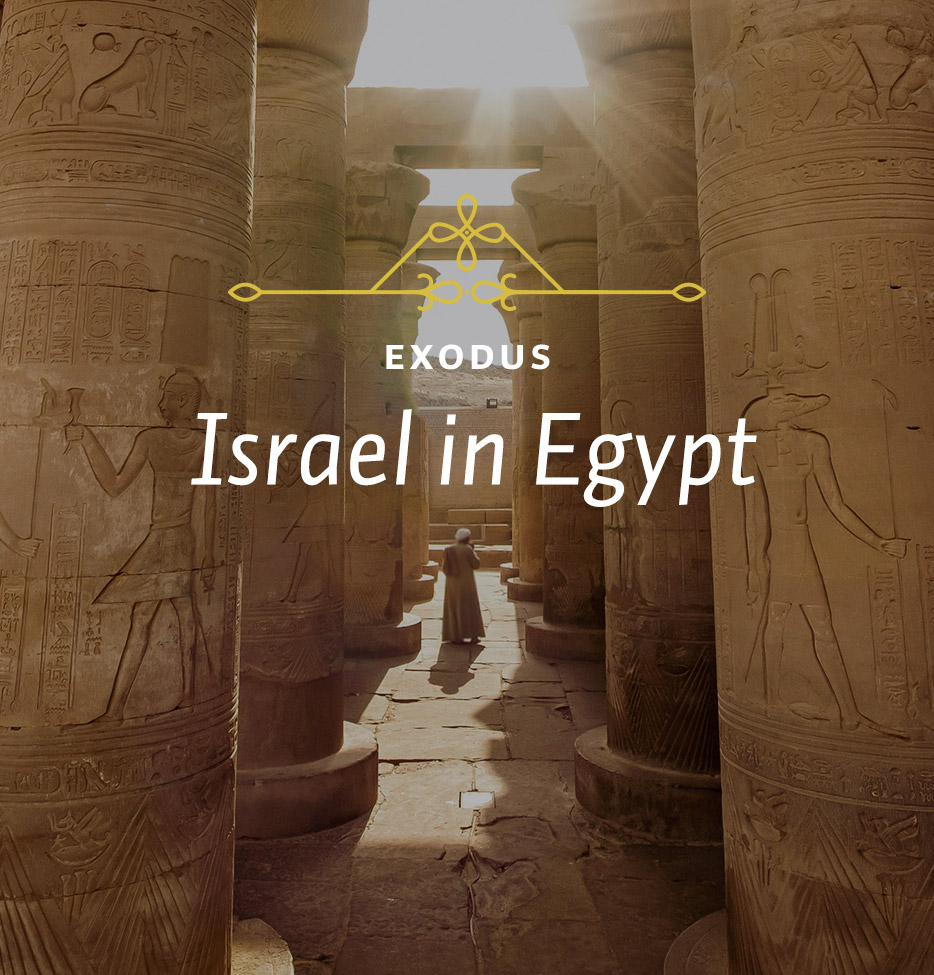The third thing God told Abraham is that these people would be mistreated. Not only would they be slaves, but they would be very badly mistreated, forced to build and labor in the fields. At last the oppression even reached the point at which the pharaoh instructed that all of the newborn male children should be killed. It was a very bitter time.
The fourth part of God’s prophecy is that the nation that mistreated them would be punished. The early chapters of Exodus tell us how God judged the Egyptians by bringing a series of ten plagues upon their land. These plagues increased in intensity. They began with a judgment upon the river and they ended with the death of all the firstborn. And it was because of these judgments that, in the end, Pharaoh was willing to let the people go.
The fifth item is that they would experience a great deliverance and leave the land of their oppression with many possessions. The tenth chapter of Exodus tells how that happened. They left the land of Egypt on the night of the Passover. Passover refers to the passing over of the angel of death. The Jewish households were spared this because of the blood that had been spread upon the lintel of the door on the doorpost. An innocent victim had died. It’s the principle of substitution. And all of that was prophesied in God’s words to Abraham.
The last part of God’s announcement to Abraham is that in the fourth generation they would return to Canaan. Now that was not an easy return. It took 40 years before they actually entered the land. But that’s what we read about in the continuation of the story throughout the Pentateuch. Finally the actual entrance into Palestine happens under Joshua, who is the successor of Moses. The story is told in the book of Joshua, the next book after the Pentateuch.
What we learn from all this is very practical. We can divide it up into two areas. First is the character of Moses. Moses was a great leader, and if you have leadership responsibilities—whether in the home, in church, at work, or in some other way—you can learn from Moses.
He had a steady faith in God. Do you believe and trust God implicitly in all things as Moses did? Moses had a great God, so he wasn’t afraid to obey this God. And he became great because of the greatness of his God. If you don’t trust God very much now, are you willing to learn to trust Him? If you are willing to learn to trust Him, God will teach you how to do that. That’s what He wants more than anything else.
Moses was also a man of great prayer. Are you willing to learn about prayer and to pray better than you do? It’s a poor Christian who doesn’t want to do that. None of us is very strong in prayer. We need to learn in this area, and Moses is a great example.
Moses was humble. Are you humble? If not, are you willing to be made so?
Moses was courageous. Now there’s a great difference between a certain kind of bravado that people have and real courage. I am not talking about bravado, but the courage that’s able to stand up and do the right thing, even when everything seems to be against you, because you know God. Moses had bowed so low before God that he was able to stand up even before Pharaoh. Are you willing to learn that?
The second general area is the character of God. We’ve only begun to touch on the character of God. We are going to see it unfolding here. One of the great lessons of these books we will study is God teaching the people of Israel what He is like. They didn’t have any idea what God was like, just like most people today. Most people today have a romantic idea of God in their heads, but which has nothing to do with the true God. In these books God is teaching the people what He is like, especially His holiness.
We have seen His faithfulness, because He made those promises to Abraham hundreds of years before the Exodus. I suppose there were people there in Egypt, suffering under the cruel lash of their oppressors, who said to themselves, “God has forgotten us.” God hadn’t forgotten! The 400 years had not yet expired. At the end of that time, God, who never breaks His word and who always keeps His promises, sent Moses. And Moses said to Pharaoh, “Let my people go.” And by the plagues upon Egypt, God brought His people out of bondage. What a faithful God we have!
You also see the power of God. We’ve begun to see that. God is the mighty One who is irresistible. Even the mightiest monarch of the day, with all the power of the Egyptian armies at his command, was unable to stand against this God. That’s our God, too. The God who delivered the people in that far-off day is the God who has delivered us from sin in Jesus Christ. And He has done it for exactly the same reason, because he is a loving God who is faithful to His promises.
Do you want to get to know God better? God wants you to get to know Him better. Tell Him that you would like to get to know Him better, and you will find that He will reveal Himself to you, as he did to Moses.






